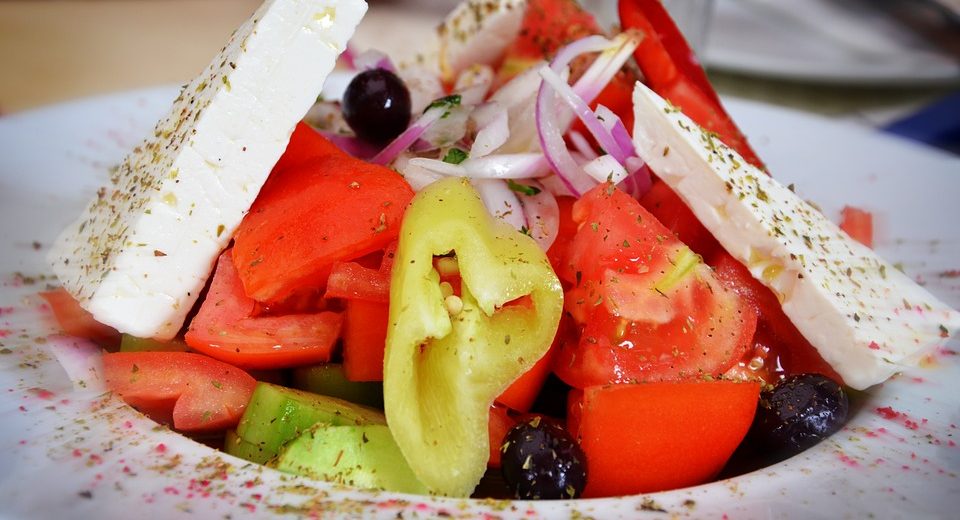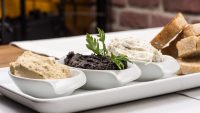One of the biggest problems concerning the premade menus of fad diets is that they will often include foods that you aren’t too fond of. The freedom of the Mediterranean diet is that it allows you to create your own menu full of foods you love, thereby increasing your chances of successfully sticking to the diet. First and foremost, when you are creating your own Mediterranean Diet Menu, you must ensure that it contains a high percentage of plant based foods, like fruits and vegetables, with particular regards to leafy green vegetables. You might actually be required to eat a mouthful of spinach every now and again.
Also for bringing your normal menu in line in line with the Mediterranean diet. Here are 13 tips on how to do so.
Tips for Main Meals:
- When cooking with oil, always use olive oil – Store it in an oil sprayer to help control how much you use. TIP: light and extra light olive oil are NOT lower in calories. The term ‘light’ is only used to describe olive oil blends.
- Steam your vegetables and have roast vegetables occasionally too – Spray roasting tin with olive oil and place cherry tomatoes, red onion, chopped zuccini (courgette), chopped eggplant (aubergine), peppers and red onions in. Spray vegetables with olive oil, sprinkle with basil (either chopped fresh or dried) and black pepper and roast in a hot oven until cooked. Serve with crusty wholegrain bread or pasta.
- Choose wholegrain pasta and brown rice rather than white rice and pasta made with white flour – and don’t add salt to the cooking.
- Make your own pasta sauces rather than using store bought ones. Lightly fry one chopped red onion and two cloves of crushed garlic in a little olive oil. When lightly brown, add chopped tomatoes, one tablespoon tomato puree, fresh basil and black pepper. Simmer until tomatoes have softened into a sauce, then serve with wholegrain pasta.
- Start each meal with salad – One of the most important aspects of the Mediterranean diet is the amount of raw food eaten. Raw foods contain the highest nutrient levels. Cooking foods actually kills nutrients. Be adventurous with salads, add peppers, red onions, grated carrot, celery, rocket, fresh herbs, a little avocado, and baby spinach. Sprinkle with balsamic vinegar to control calories.
- Instead of buttering your bread mix a little olive oil and balsamic vinegar to use as a dip. You can even marinate the oil by placing it in a bottle with sprigs of rosemary, coriander or basil, small chillies and garlic cloves etc. Cap the bottle and store for a few months. The resulting oil will be infused with the flavors.
- Add less meat in recipes like stew, soup and casseroles and add beans and extra vegetables to compensate. This will not only make the recipe more healthy, it will also save money.
- Eat oily fish at least once per week – Fresh is better than canned. Excellent oily fish options include salmon, tuna, sardine, herring, trout, prawn/shrimp etc.
- Stop using salt as a flavoring! The Mediterranean diet includes little sodium. flavor foods with garlic, fresh herbs, red wine and black pepper. When using salt, always use sea salt rather than table salt. Sea salt contains many trace elements that the body needs that table salt lacks.
Tips for Snacks:
- Swap biscuits, cakes and crisps for fresh fruit or a handful of raw, unsalted nuts or seeds as a snack.
- For a delicious snack serve raw vegetables (carrots, celery, broccoli etc) with homemade tzatziki – Mix low-fat Greek yogurt with crushed garlic, lemon juice, grated cucumber and black pepper to taste.
Tips for Dessert:
- Commit yourself to eating five serves of fruit and vegetables per day
- Try fresh fruit salad with low-fat natural yogurt and a drizzle of honey for breakfast or desert.





